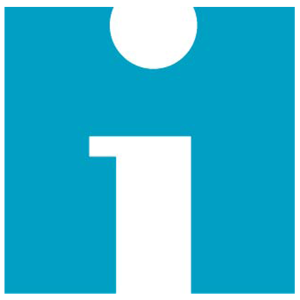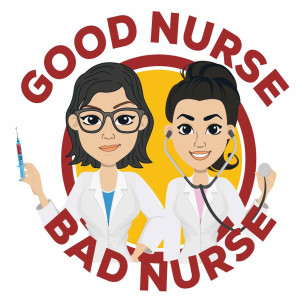
WIHI - A Podcast from the Institute for Healthcare Improvement
Health & Fitness:Medicine

Date: January 26, 2012
Featuring:
- Ellen Goodman, Columnist, Author, founding member of The Conversation Project
- Ira Byock, MD, Professor, Dartmouth Medical School; Director of Palliative Medicine, Dartmouth-Hitchcock Medical Center
- Bernard “Bud” Hammes, PhD, Director, Medical Humanities and Respecting Choices®, Gundersen Health System
- Martha Hayward, Lead for Public and Patient Engagement, Institute for Healthcare Improvement
Most of us, if asked, say we care a great deal about will happen to us when we’re at the end of our lives. And yet, because we’d also rather focus on just about anything but death and dying, especially if we’re young and healthy or aging well, we’re all vulnerable to what can transpire by default: spending our last few days in an ICU, even if that’s at odds with our needs and preferences. The reasons for this disconnect are complex but often stem from the fact that individual and family decisions come late, are hashed out during a crisis, and in the very setting — a hospital — that promises high-tech and high-intervention cures for just about everything.
This scenario is slowly starting to change. There are now numerous efforts, some medically-based and many more that are grassroots, successfully promoting alternative perspectives and practices so that people who’d prefer to die at home can do so, and benefit from pain management and comfort over costly and heroic measures. But when you get right down to it, “dying well” is quite personal and, as such, needs to start in a personal place: by having a conversation with the people you’re closest to about how you want to die and how they, surviving friends and family members, can feel okay carrying out your wishes. Equally important: initiating or being open to that conversation, perhaps several conversations, when the circumstances aren’t so fraught and there’s time to digest and reflect and integrate the information.
All of this and more are what’s behind a new initiative getting underway in 2012 called The Conversation Project (TCP), which will be discussed on the January 26 WIHI. In collaboration with IHI, award-winning columnist and founding member Ellen Goodman and the project’s team members seek to create a cultural movement with one basic goal: to help every American say what they want at the end of life so that family members and medical providers have the guidance they need to respect those preferences. To get there, TCP wants to normalize discussions that can at times feel “too big to broach” by encouraging loved ones to talk to one another when circumstances aren’t so charged — when everyone is healthy — and the environment is more conducive to a good exchange. Around the kitchen table, for instance, rather than the hospital bed.
To launch a national campaign to bring about this change, Ellen Goodman and members of TCP have turned to many, many experts on death and dying, palliative care, and successful partnerships with patients and families, including two outspoken champions of change on the clinical and community side: Dartmouth’s Ira Byock and Gundersen Health System’s Bud Hammes. With IHI’s Martha Hayward also on board, WIHI host Madge Kaplan invites you to get an early look at a unique initiative in the making from the architects themselves. Increasingly, that’s going to become all of us —having “The Conversation” and telling others how it went and what we learned in the process. It’s hoped that many will benefit, including health professionals who often find themselves at a loss for words, brought up short by their training, and caught in the cross hairs of their own and others’ conflicting emotions and wishes.
More Episodes
WIHI: Success at the Right Speed: Learning from Toyota
 2017-06-27
2017-06-27
WIHI: The Meaningful Methodology of Patient- and Family-Centered Care
 2017-06-27
2017-06-27
WIHI: Momentum for Maternity of the Safest Kind
 2017-06-27
2017-06-27
WIHI: The Next Wave of Reform for Medical Education
 2017-06-27
2017-06-27
WIHI: The Health Care Tune-Up Show! Leading with Logic and Emotion
 2017-06-27
2017-06-27
WIHI: Message to Managers: Crises Happen. Plan Ahead!
 2017-06-27
2017-06-27
WIHI: Tipping the Scales: Fresh Ideas to Combat Obesity
 2017-06-27
2017-06-27
WIHI: Adverse Events and Their Aftermath: SOS from Clinicians
 2017-06-27
2017-06-27
WIHI: Gimme Housing, Not the ED: A New Campaign for Housing the Homeless
 2017-06-27
2017-06-27
WIHI: Patient Safety Officer: One Person’s Title, Everyone’s Responsibility
 2017-06-27
2017-06-27
WIHI: OpenNotes and the Electronic Medical Record
 2017-06-27
2017-06-27
WIHI: All Hospitals in Favor of Saving Money: Say “Patient Flow!”
 2017-06-27
2017-06-27
WIHI: Getting Down to Business…and Health Care Reform
 2017-06-27
2017-06-27
WIHI: New Ways to Reduce Diagnosis Errors
 2017-06-27
2017-06-27
WIHI: The Future of Nursing
 2017-06-27
2017-06-27
WIHI: Quality Care During Advanced Illness: What Do Patients Want That Works?
 2017-06-27
2017-06-27
WIHI: Run, Don’t Walk! The Urgent Need for Patient Safety
 2017-06-27
2017-06-27
WIHI: Reducing Avoidable Visits to the Emergency Department
 2017-06-27
2017-06-27
WIHI: The Medical Home
 2017-06-27
2017-06-27
WIHI: Next Waves of Health Care Reform
 2017-06-27
2017-06-27
Create your
podcast in
minutes
- Full-featured podcast site
- Unlimited storage and bandwidth
- Comprehensive podcast stats
- Distribute to Apple Podcasts, Spotify, and more
- Make money with your podcast
It is Free
You may also like

Good Nurse Bad Nurse


The Relaxback UK Show


On Call With Dr. Anselm Anyoha


The Peter Attia Drive


The Doctor’s Farmacy with Mark Hyman, M.D.


- Privacy Policy
- Cookie Policy
- Terms of Use
- Consent Preferences
- Copyright © 2015-2024 Podbean.com


 iOS
iOS Android
Android